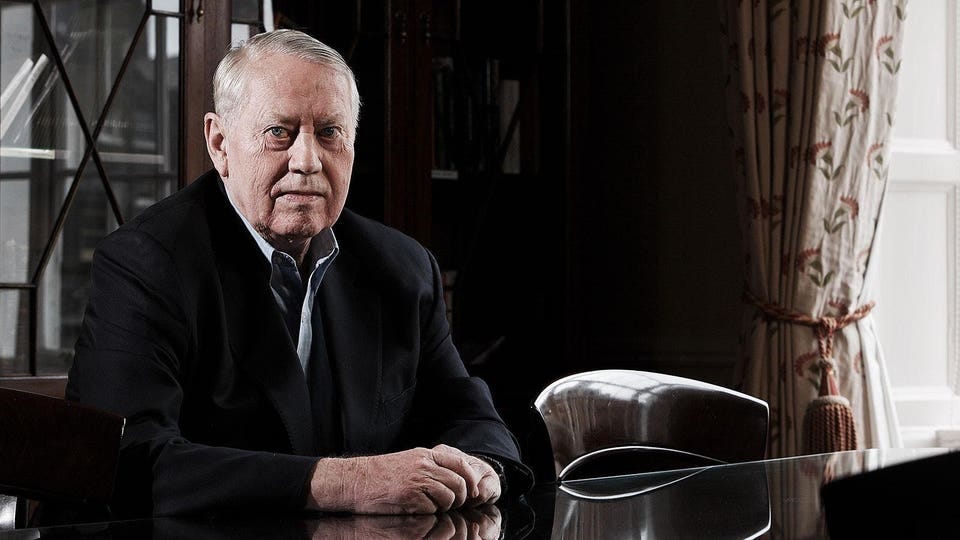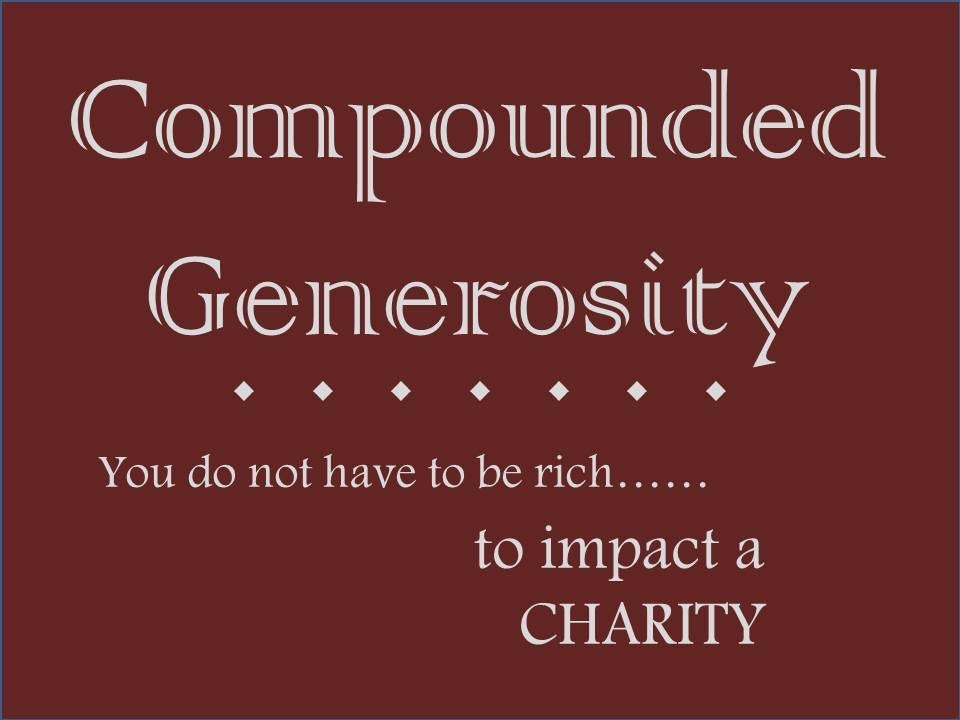Compounding in other walks of life
Make your goodwill go a further distance
Compounding is often termed as the 8th wonder of the world, a phrase likely coined first by Albert Einstein. We as investors primarily think about compounding in terms of compounding of capital. However, compounding produces great results in other walks of life too. For instance, improving your skills in some talent each day by 1% would ensure that you are likely twice as best in about two and a half months.
Today I am going to talk about one other place where the effect of compounding is massive and yet deeply underrated. That is in the space of social causes / philanthropy / goodwill. If you are reading this blog, and have spare money to invest, then you are privileged enough in life than vast majority of humanity, and that means somewhere deep down in your mind you want to do something for the world around us.
There is often an unwritten rule to think about putting our money to good use for social causes only when we are thinking about our will or inheritance. This stems from the belief that one might need access to your capital in the interim and it is best left for the end to give away one’s money. The wisdom in this is no doubt sane. In doing so, we might however be missing out an opportunity to serve the world around us in a much more meaningful way.
Putting your money to cancer research 30 years from now will have impact on a lot less cancer patients than putting a smaller sum to use today, as any breakthroughs can be built upon (scientific research is also a compounding engine on its own) and will enrich the lives of patients along the way. Power of Compounding is at play.
Imagine giving away some of your wealth to serve old people who are poor and homeless. It is likely that their lives wouldn’t be in state of such poverty if they had gotten som support in their middle ages, perhaps to start a micro-venture or such. Hence a dollar/rupee/pound that could have gone into their life sooner would have been more valuable than a dollar/rupee/pound today. Same pattern.
Imagine putting your money to serve middle aged unemployed people through job search support or in vocational training. It is likely that they could have avoided being in this place if they had received such vocational training earlier in the life. Again same pattern.
Money put to raise a forest at the end of my life will serve a lot less meaningful a purpose to this world than a significantly smaller sum put to use to plant a few trees and saplings today, as they will grow into trees much sooner and serve us with greenery, shade, and fruit for many many years before the end of my life would be in sight.
You get the idea. In most cases, putting money to use today for any social cause is likely to be better served than compounding that money in your hands and putting it to use at the end of your life.
Someone far smarter, and far far generous than me, had figure this out many decades ago - Charles “Chuck” Feeney, who passed away last month, built his fortune by founding the DFS group in 1960. In the 1980s, unbeknownst to his own business partners, he transferred his stake into Atlantic Philanthropies which used the stake to serve various causes.
By the 1990s, as Feeney turned 60, the foundation was spending money a lot faster than the rate at which the corpus was compounding and this was on purpose. By 2003, the charity made a pledge to spend down its entire corpus by 2020 as they believed in the fact that money put to use on social causes today is better than tomorrow and hence the idea of holding on to the corpus held less purpose than previously imagined. This wasn’t an empty pledge - the charity completed this in 2020.
Feeney lived right through this process and left so little for himself and his family, holding on to only $2Mn in 2016, while he had already put $8Bn of his wealth to good use during his living life. He not only signed the Giving Pledge, but Bill Gates himself admits that both he and Warren Buffett were influenced by Feeney’s thinking.
Where am I going with all this? In early 2000s, sometime around the time I was completing my education, I read about Atlantic Philanthropies and their 2020 pledge. I have followed the progress of this mission along the way and was very pleased to know when they got to their destination in 2020. Back in the early 2000s, I was inspired enough by the idea that I convinced my wife (who I knew from before my graduation) to join me in putting a small portion of our earnings every month to some use or the other along our lives rather than wait till some future date.
Every month, we put away a portion of our incomes to a few causes that are close our hearts and have been doing so for close to 2 decades, and this has been so from before we bought our first house, or our first automobile, or our first serious vacation. Every time we get a raise, we recalculate the monthly amount and up it goes. (We never decreased the absolute numbers, even though there have been unfortunate occasions where our incomes have gone backward. We were comfortable letting the proportion increase when such occasions came along. The money was likely serving a better cause than in our pockets.)
The specifics of the causes we support (and how we bias it for compounding) is a topic for a future post. That said, if you haven’t thought about serving the causes around you, I hope that reading this post will inspire you to think about it.
Compounding money, as espoused in this blog, for your financial independence, is all well and good, but knowing how to put it to use across the spectrum of our spending is as important and this should apply as much to your social giving as for everything else. Give some of it soon and give it often. Let the magic of compounding take over from there.
As always happy investing!
(ps: Apologies if this post touched no topics of investing. Learning of Feeney’s passing has triggered the need to put something on paper, so here it is.)




